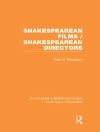Tender, ruminative…Fugard has been anatomizing the evils of apartheid, and the troubling legacies it left behind, throughout his long and distinguished career.—Charles Isherwood, New York Times
A touching portrayal of compassion passed down through two generations in a racially torn continent, The Painted Rocks at Revolver Creek centers around Nukain and Bokkie, an elderly African painter and his young protege. Inspired by the life of Nukain Mabuza, a self-taught artist who painted the boulders on the farm on which he worked, this play observes two differing experiences with racism, in the decades during and following apartheid, while ultimately illuminating the meaning of preserving the history of one’s own past.
The Painted Rocks at Revolver Creek is another entry in Fugard’s canon that sheds a light on the looming shadow of apartheid and its resulting dissolution of society and politics in South Africa.
O autorze
Athol Fugard (1932-2025) worked in the theater as a playwright, director and actor for more than fifty years. His plays include Blood Knot, Boesman and Lena, “Master Harold”… and the boys, The Road to Mecca, My Children! My Africa!, Statements After an Arrest Under the Immorality Act and Valley Song.












